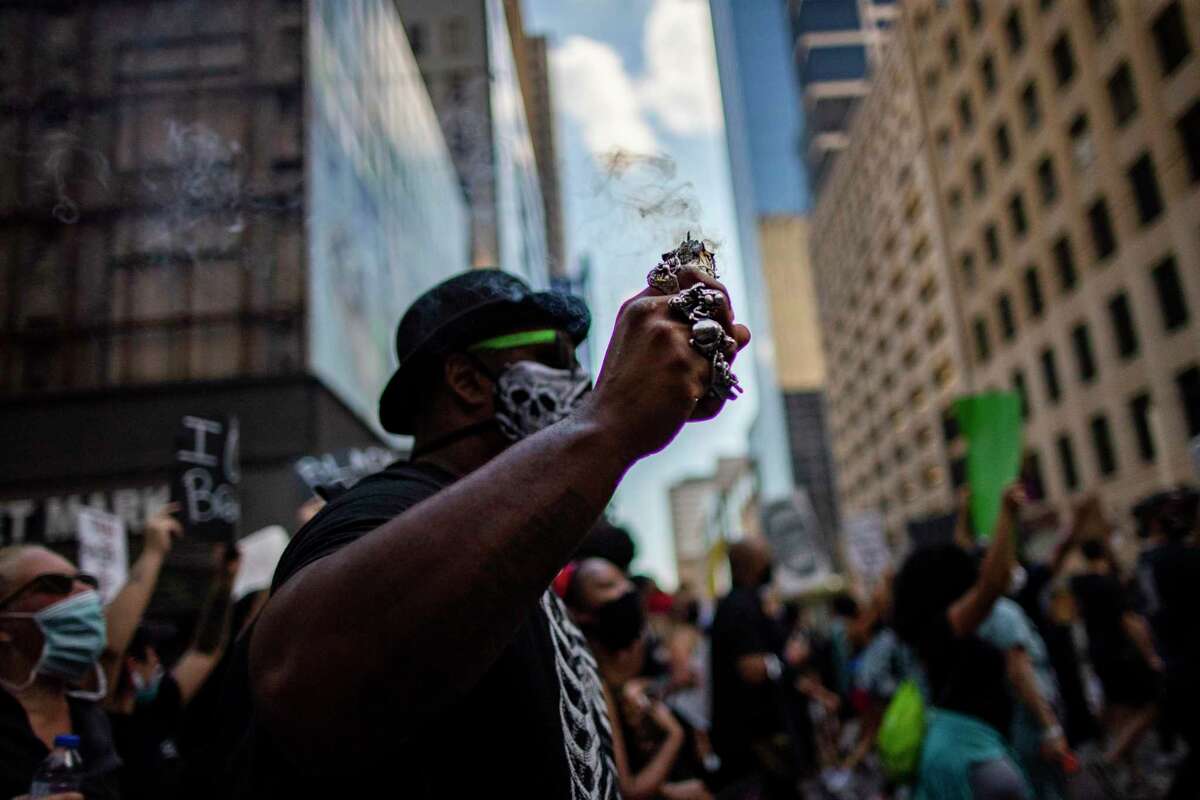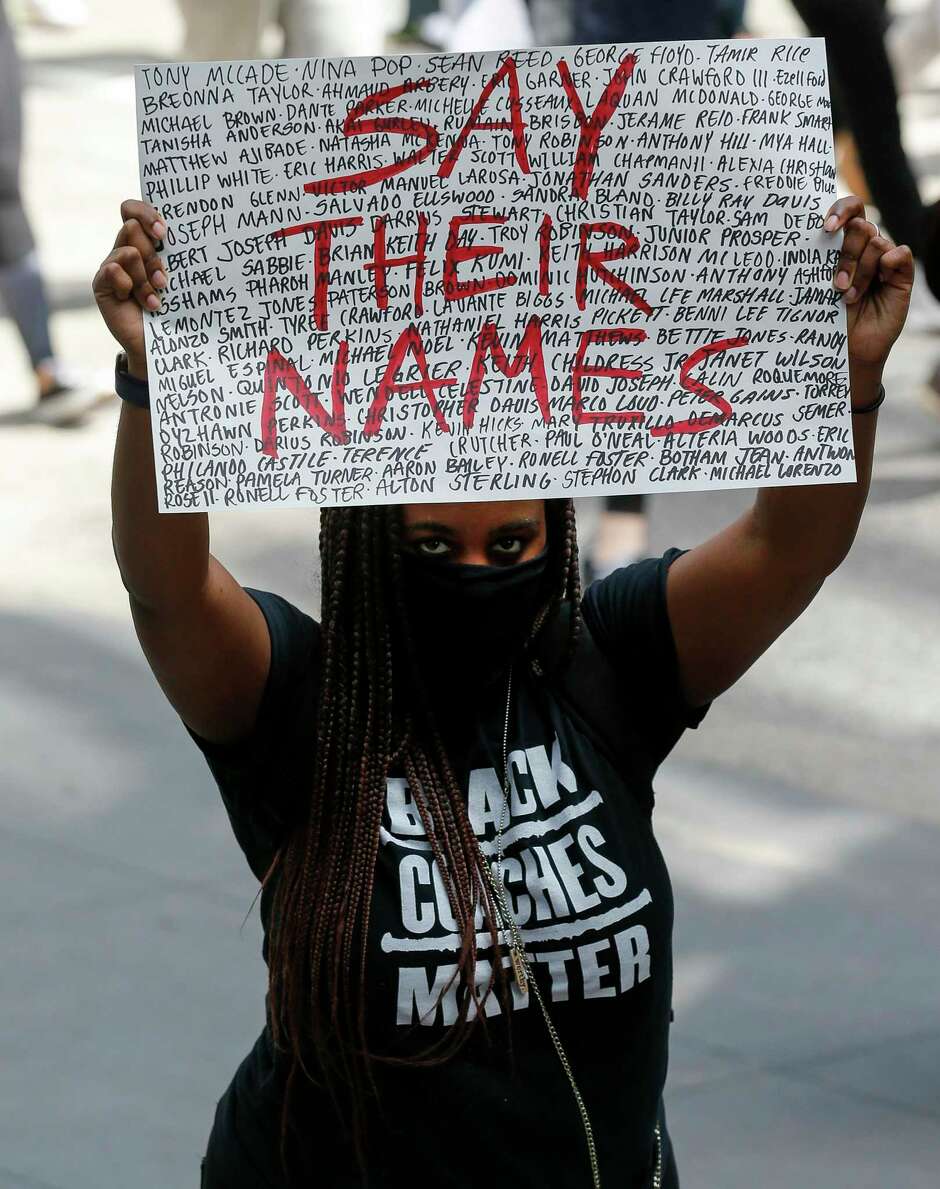‘Silence is violence:’ Why speaking up against racism speaks volumes

Joy Sewing June 5, 2020 Updated: June 5, 2020 12:28 p.m.Comments7



If there’s anything we’ve learned from the global protests against racial injustice and police brutality over the last two weeks, it’s that speaking up speaks volumes. Calling out racism is a crucial step to healing, said Dr. Rheeda Walker, a Ph.D. licensed clinical psychologist, University of Houston professor and author of “The Unapologetic Guide to Black Mental Health.”
“This is an important time in history and an important time to speak up against racism and injustice,” she said.
Still, Walker is cautiously optimistic that the protests will have real impact in dismantling racism in America.
“Even though white people seem to be hurt by what black people have been experiencing for generations, their hurt is not going to impact the day-to-day pain of black people,” she said. “They have hurt feelings, but we have real pain. We’ve learned to endure. What you see now is people tired of enduring.”
Walker, along with her 9-year-old son, attended the protest to pay tribute to Houston native George Floyd in downtown Houston last week. An estimated 60,000 people congregated at City Hall to admonish police brutality and racism in the wake of Floyd’s brutal homicide by Minnesota police last month. The protest was organized by Houston rappers Bun B and Trae The Truth.
Four police officers have been charged in Floyd’s death.
“It was important for my son to be a witness to this,” Walker said. “He’s had a lot of questions and he’s still trying to understand why police officers would do this.”
She added that the stress of racism and its impact on mental health are so deeply engrained it will take much more than protests to reverse the damage. “It may give some relief, but it will be temporary. We have been enduring this so long that many of us don’t realize we’re in survival mode.”
Cherry Steinwender, executive director of the Center for Healing Racism, is hopeful.
“This feels different,” she said. “There have been many protests over the decades, but this is the first time I’ve seen it worldwide. I’ve been trying to get this country to use the word, ‘racism,’ for 30 years. We’ve been afraid to talk about race. Now, we’re seeing so many white people use the word — that’s hopeful.”
Steinwender is hosting virtual “I Can’t Breathe” workshops to talk about racism and its impact. It’s referencing the words uttered by Floyd minutes before his death, “modern-day lynching,” as she sees it.
“Racism isn’t a black problem. It’s a white problem, and their silence is violence,” Steinwender said. “But it’ll take white people to call out other white people for real change. When black people speak their truth, we are called angry or accused of using the race card. We are looking for white people to speak out.”
Steinwender has unique perspective, given that she’s been married to Austrian-born Siegfried Steinwender for 39 years. The couple met a garage sale.
“He was looking for junk and found a treasure,” Steinwender joked, but she admits she concealed the fact she was married to a white man for years because she didn’t want it to confuse her message. She said her husband often has shared some of the racist water-cooler conversations that he would hear; his co-workers just assumed he felt the same. She used those conversations in her educational training and programs about racism and stereotypes.
Racism is the cause of stress in the black community, Steinwender said.
“We know stress is a major cause of illness. Black people are living a life under stress every day,” she said. “That fact that you are black and living under a racist systerm is the cause of stress. That’s why we have underlying health issues.”
Self-care is crucial right now, Walker said. She advises pulling away from TV news and social media. Constant messages about racism and police brutality can further traumatize.
“We don’t realize what we’re watching because the goal is to continue to survive,” she said.
Now’s the time to get creative.
“There are some big ideas in black minds, but they have been so bound in racism that they haven’t had the opportunity to be come reality,” she said. “We need to come up with plans. It’s time to for us to get out from under racism and create our own way moving forward and not wait for the system to fix itself.”joy.sewing@chron.com



72 Comments
Sorry, the comment form is closed at this time.